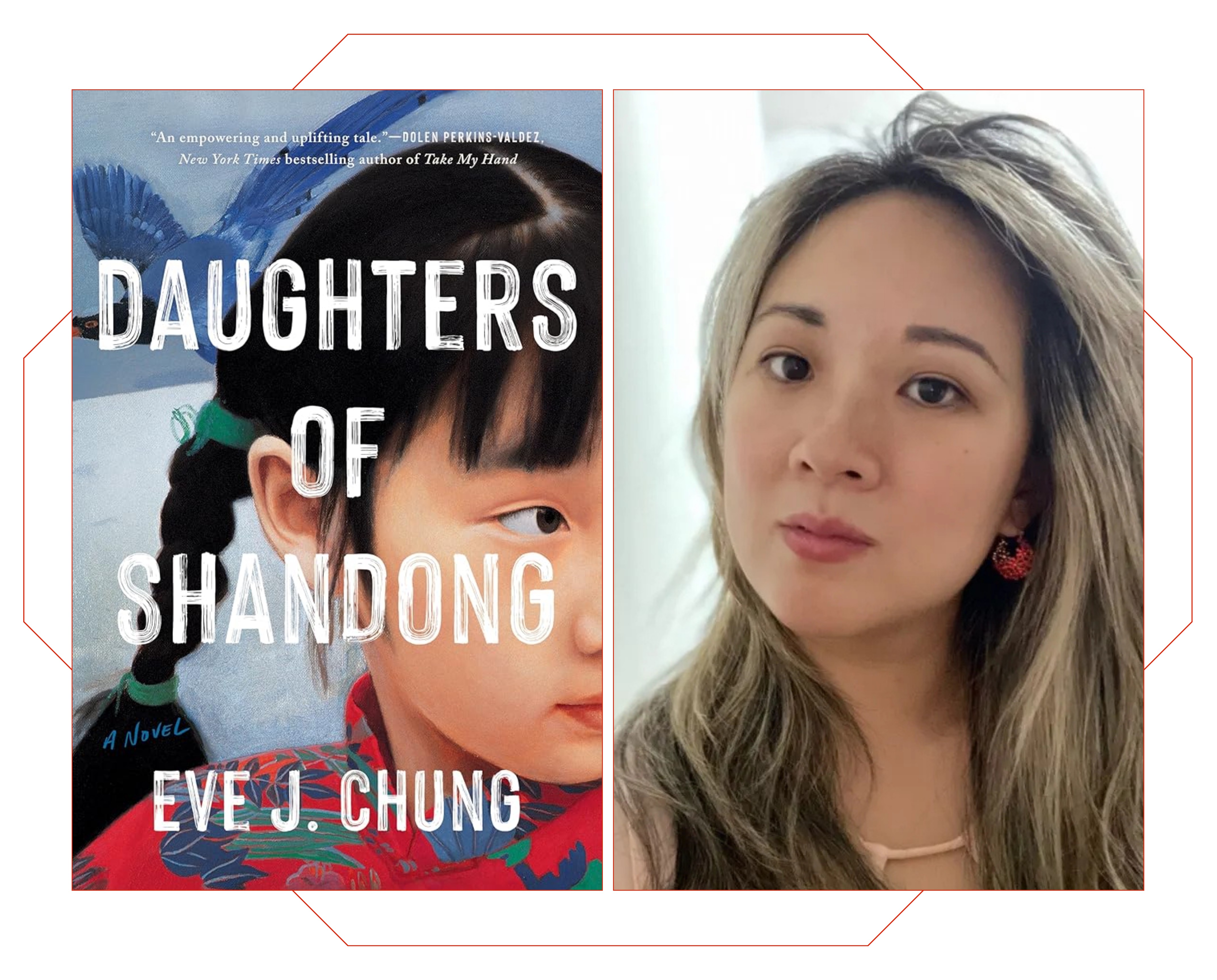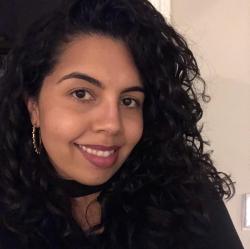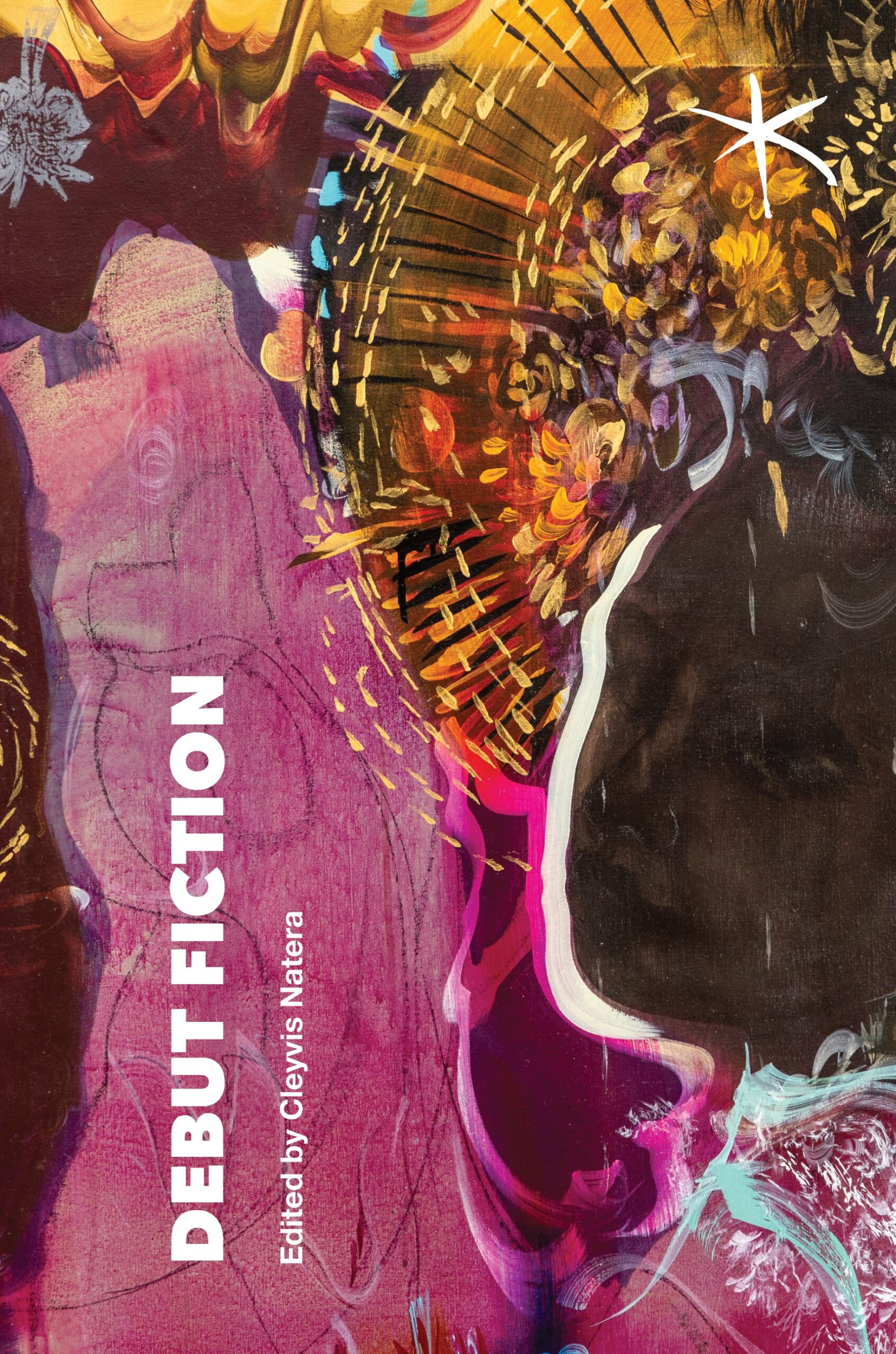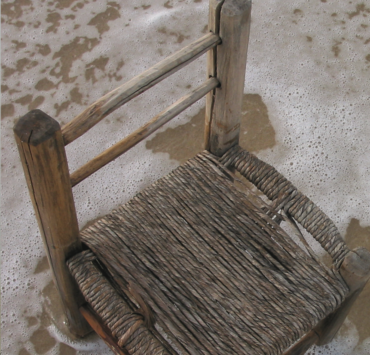
In Eve J. Chung’s debut novel, Daughters of Shandong, which follows a mother and her three daughters during a turbulent period in China’s history, eldest daughter Hai has just witnessed her paternal grandmother, Nai Nai, in a rage after learning Hai’s mother, Chiang-Yue, was pregnant. Nai Nai had ordered Hai’s parents to sleep in separate bedrooms, to keep them from having intercourse.
It’s 1948 and Hai teeters on eggshells around Nai Nai, who regularly abuses Hai’s mom for failing to produce a male heir. It’s a major concern for the wealthy landowning Ang family. “Nai Nai was a small, thin lady with ebony hair, birdlike hands, and dainty bound feet,” narrates Hai. “Yet, even as she tottered in her small silk slippers, she had the presence of a warlord and a tongue like a whip. I was eleven, and old enough to know that no one could calm her after such a rage, not even her first and favorite son.”
When the Communist army closes in on rural Shandong, the family decides to flee and leave behind Hai, her sisters and their mother. With their home seized by a group of Communist cadres, the penniless Hai and her mother and sisters begin a harrowing escape to Taiwan.
What follows is a gripping story of survival, the undying love between mothers and daughters, and intergenerational trauma. Inspired by Chung’s grandmother’s arduous journey from mainland China to Taiwan, the engrossing Daughters of Shandong follows the depths of maternal love and sacrifice through many obstacles.
I spoke with Chung about the writing and research behind Daughters of Shandong, laying the societal disparities between girls and boys on the page, and more.
____________________________________
Amaris Castillo (AC): Congratulations on your debut novel, Daughters of Shandong. Your book absorbed me from the start. I understand your story was inspired by your grandmother, who you lived with in Taiwan and was your caregiver, when your parents couldn’t afford childcare. You call her Puo Puo. What do you remember about her?
Eve J. Chung (EJC): I lived with her full-time as an infant and then she often came to our house throughout my childhood, so I saw her regularly even after I returned to the States. She was this eccentric, funny, happy person. I didn’t know that she had this difficult past. I knew snippets of it, but not the full extent. I saw her as such a joyful, mischievous person. When my grandfather would fall asleep on the sofa, she would take her lipstick and draw on his face. My mom was different personality-wise, and so I always saw Puo Puo as my ally because she had authority over my mom. So as long as Puo Puo was around, I was free to do whatever I wanted. I always loved spending time with her.
AC: I read that after your grandmother passed away, you began researching her history to one day turn it into a book. Your mom offered to help you self-publish it. At what point did you decide that this story had to be fictionalized?
EJC: I didn’t think to write down my grandma’s story until ten years after she died. While my grandma was alive, she was always pressuring me to hurry up and get married and have children, because she wanted to be a great-grandma. Unfortunately she didn’t get to see that day.
When my daughter turned one, that’s when I first started thinking about writing her story. And I didn’t realize how much I didn’t know. She didn’t want to share painful things with me. Because no matter how old I was, she always saw me as a child. All I knew was that she had bad joints; every evening she would use a heat lamp on her knees. When she was in China and the Communist cadres invaded, they made her kneel on ice for hours. Multiple times. So her knees were destroyed.
I didn’t know what she had to do to get to Taiwan. According to my mom, she had to go by foot from rural China. There were details my mom got wrong. She had initially told me they walked from northern China to Hong Kong, which is over a thousand miles. Later I found out she took the train, but walked for difficult portions of it.
I knew I had to write it as a work of fiction because even my mom doesn’t know what’s true, and she’s heard so much of this story.
My grandmother’s sisters gave us good details. But there’s parts still missing. My grandmother’s youngest sister told us that they were at Rennie’s Mill refugee camp. But, nobody knows what happened at the refugee camp. I ended up turning to academic resources, which are few; at the time no journalists were allowed in the camp. I got lucky that a wonderful man did his PhD thesis on this particular camp. Since he lives in Hong Kong, he interviewed a lot of the survivors from that camp and had information that I would have never been able to get elsewhere. I don’t know if my grandmother went through the same things that those interviewed did, but I had to use other things to fill in all of the gaps.
AC: In your novel, we meet the wealthy Ang family – among them are Hai, the oldest of four girls, and their mother. She is consistently abused by Hai’s paternal grandmother because she hasn’t given birth to a son. When the Communist army is closing in, a plan is made for the family to flee – but they leave behind Hai, her sisters, and mother to watch over the property. As a reader, it was a clear indicator of how girls were viewed as inferior to boys – and of women who haven’t birthed a son. In fact, the disparity between boys and girls runs through the whole story. What was it like to lay those disparities on the page?
EJC: It is something that’s affected me my whole life, but not something that I talk about often. I am a women’s human rights lawyer, so it affected me enough that it determined my career. But in my own personal experiences, it’s not something that I delve into.
What Hai and I think my grandmother went through is quite common to a lot of women in China. When my mom was born, my grandmother’s mother cried; she was so upset that my mom was a girl, because she was worried that my grandmother would be abused like she was for not having a boy. Luckily that wasn’t the case for my grandmother, but among my generation many girls are adopted from China due to the one-child policy. Since families could only have one child, if they had a girl, they would often give her up for adoption. From an outsider’s perspective, it’s easy to villainize the women who give up their daughters.
I hope this book shows how entrenched sexism is. The mothers in my book, they love their daughters, but they internalize so much they favor their sons, or favor boys. This is reinforced by everybody.
It’s changing now, but not fast enough. We always say that for women’s equality: it’s changing, but not quickly enough. And unfortunately, we also go backwards. That’s what’s frustrating to me when I look at history and see it repeating itself.
AC: You decided to set the story in 1940s China, during the transition from Nationalism to Communism. During your research into this time of the country’s history, what were some of your main takeaways or surprises?
EJC: There weren’t necessarily surprises, but I think a lot of sadness in armed conflict. I talked to people in China and Taiwan about that period, which was a turbulent and incredibly violent period following World War II. For context, during WWII the Nationalists and Communists had a brief alliance to fight the Japanese. And after the Japanese surrendered, they essentially went back to killing each other.
There’s a quote from my book where a character recites a popular Chinese saying: “The government is as far as heaven is.” In these types of wars, women and girls suffer the most. What surprised me when I talked to people, including in China, was that during the war both the Nationalists and Communists did horrible things to their own soldiers. Civilians were also caught up in so much of the violence. I feel for families during that period who didn’t get a break. You start with the imperialist period, then all of the warlords and the Japanese invasion, and then the Civil War. It’s this incessant parade of violence that you have no control over that you must suffer through.
AC: I was amazed to learn that you completed the first draft in three months. In a note to readers, you described your book as a string of tiny desperate steps. What was behind your urgency, if you call it that?
EJC: As a mom to small kids, there’s so little time. When I started to write, I told myself: If you don’t finish this in one go, you’re never going to do it.
There’ve been a few times in my life where I’ll start to write a novel, and then I’d write a few chapters and stop – and then never return to it. So when I started this project, I told myself, You just need to get this done.
I told my mom that I was going to do it, so I had an accountability partner. Whenever I talked to her, I would say, ‘I have 20 pages done.’… Eventually there’s a point where I was like, ‘I have 200 pages written.’ And one day, I finished it.
The first draft was not good. It was messy. But once it was done, I was like, OK, I can improve it. I have something to work with.
AC: After they’re abandoned by their family, Hai and her sisters and mother become refugees. They endure a lot of pain and harrowing circumstances. I don’t want to spoil anything for readers, but what can you share about your characters’ fight for survival?
EJC: They had very little. It was a mother and her three daughters. Foot binding was banned around 1918. But for my great-grandmother, her feet were bound as a child. And the bindings were taken off, but she couldn’t walk normally. Given that situation, I’m amazed that she took three daughters through mountain roads on a Chinese-style wheelbarrow. I myself complain when I have to take my kids to a birthday party by myself because I live in New York – or if I have to cross a borough. But she had an infant who she had to carry, and two older daughters.
I admire the perseverance that she had to go through, but also, her intelligence, because at that time travel was also controlled. You couldn’t freely move around. She forged her travel documents using a bar of soap. She could write a little bit, but she was never formally educated.
She just went for it and was able to get her daughters to safety… They really got through China one step at a time. They ate wild grass. They begged for food. And eventually they made it to a refugee camp.
AC: You’re a human rights lawyer who focuses on women’s rights, and women and girls form the center of your book. It’s in the title: Daughters of Shandong. The book’s core, to me, is about this deep family connection between women. Was that your intention when you first began writing?
EJC: I don’t think so. My only intention when I started writing was to get it done. But I think because so much of my life revolves around these issues, it was natural to put it in. What’s sad is how much the discrimination is passed down. I remember I was talking with a friend and she was saying the book is about women and there’s a role of both men and women perpetuating this. But, in the home, a lot of times it is other women. At least for me growing up, it was female relatives who very much told me about a woman’s role in society. Not the male relatives. Of course they agree on it, but it’s the female relatives who are passing it on. And I think it’s hard to break the cycle.
This book is very much about breaking harmful cycles. It continues to be a problem today where there’s a harmful practice for girls and you get a community saying, ‘Oh, but this is our tradition. We’ve done this for thousands of years.’ We as a society need to push and say, ‘It stops somewhere. It doesn’t matter if you’ve been doing this for a thousand years. It’s harmful and it needs to stop.’ And it’s hard for communities to do that, and it’s even harder for one person to do that when the rest of the community is reinforcing it. I think that is a central part of the book. It’s not something that I set out to do, but I am glad that it is such a big focus.
AC: In the novel, Hai’s mother – from the beginning of their new lives as refugees – fights tirelessly to keep her daughters together and to move forward. But she still hopes to reunite with her husband, even when she’s abused by her mother-in-law, because that’s where the stability lies. She knows they will have a roof over their heads, food and somewhere to sleep. What were you hoping to say about a woman’s place in society at that particular time, for the mother’s goal to be that?
EJC: That’s something that I’ve thought about so much. When I look at what my great-grandmother did, it was amazing. What she accomplished, I think few people could do – let alone few women, given the role of women in society. I always say she’s someone who I think could have started her own business. She could have done a lot of things to support herself and her daughters, but in the tradition at the time there was a lot of stigma in being a single mother. There still is a stigma. And I think a lot of a woman’s worth then, and now, is the type of man you can get.
I remember a friend of mine who is Korean and lives in Korea said if you don’t marry a proper man – no matter what you are in your own self and whether you have a career or other accomplishments – people talk about you and say your marriage is bad. Because your marriage itself is part of your accomplishments. Of course it made me sad, because she’s my age, and that’s the same mentality of my great-grandmother. She was like, ‘OK, this is my husband.’ And you don’t want to be a person who is abandoned. Divorce was also very uncommon at that time. So, for her, it was like her place in society depended on her acceptance by this family. And the religion at that time also had it so women are part of their husband’s family upon marriage. In the afterlife, she is also part of that family. So it’s just tied in a way that I think, for someone like my great-grandmother, felt unbreakable.
AC: This story was at times difficult to get through, given all the trauma – hunger among them – that your characters have to endure. Was there a particular scene that was the most difficult for you to write?
EJC: This is a real story: My grandmother lost one of her sisters very early on. Someone asked me, ‘Why would you put in a character that dies so early?’ I put that in because it just shows how useless girls were considered then. As a summary, my grandmother had a sister who had tuberculosis. I think she was two or three. The family just refused to pay for her medical treatment. Again, this was a wealthy family. They could totally afford it. But the idea was, you don’t waste money on saving a daughter. So they just let her die.
It was hard to write that scene, especially me having a daughter around that age and not being able to understand the cruelty that goes into it. I try not to judge, even though it’s hard not to, because I understand that these women are raised in a certain context. But that was, for me, the part of the book that I struggled most with.
AC: You touch on many themes in Daughters of Shandong. One of them is intergenerational trauma. I interviewed a trauma psychologist, Dr. Mariel Buqué, who described this type of trauma as a “wounding of the soul” – a multilevel emotional injury that impacts a person’s mind, body, and spirit. Sometimes this trauma is not very clearcut. Did you set out to make intergenerational trauma one of your focuses?
EJC: I didn’t know much about intergenerational trauma until after I wrote this book. Now I do know this story is an inherited pain. I am surprised at how much it affected many of the women in my family. I don’t know how much of this is cultural, where you don’t talk about pain. My mom also doesn’t talk to me about how upset she feels at the unfairness of the setting in which she was raised. When I spoke earlier about breaking cycles, often it isn’t one person who breaks the cycle. It’s a series of generations, where each generation you break out a little bit, so that the next generation can break out more.
I’ll say that my grandmother definitely still retains a lot of sexist beliefs, but she was much better than her mother. And I think farther down the line, we see that. I don’t think it was intentional, but I think it’s a common phenomenon – not just in Chinese culture, but almost every culture in the world has issues with gender inequality. And I think that applies to all of us. I’m sure many of us have a grandmother who has these beliefs. Part of it is we love that person, but they might be teaching things that are harmful. And navigating that is really tough.
____________________________________
Eve J. Chung is a Taiwanese American human rights lawyer focusing on gender equality and women’s rights. She lives in New York with her husband, two children, and two dogs.
Her novel Daughters of Shandong was published on May 7, 2024 by Penguin Random House and is available for purchase here.
Images are credited to the website of the author.

Amaris Castillo is a Brooklyn-born journalist, writer, and the creator of Bodega Stories, a series featuring real stories from the corner store. Her journalism has appeared in The New York Times, the Lowell Sun, Remezcla, Latina Magazine, Parents Latina Magazine, and elsewhere. Her creative writing has appeared in La Galería Magazine, Spanglish Voces, PALABRITAS, Dominican Moms be Like..., Quislaona: A Dominican Fantasy Anthology, and is forthcoming in Sana Sana: Latinx Pain and Radical Visions for Healing and Justice. Her short story, "El Don," was a finalist for the 2022 Elizabeth Nunez Caribbean-American Writers’ Prize by the Brooklyn Caribbean Literary Festival and her short story, “The Moon and the Sun,” was longlisted in 2021. Amaris currently lives in Florida with her family. You can follow her on Instagram @amariswriter and read her stories from the colmado at bodegastories.com.







